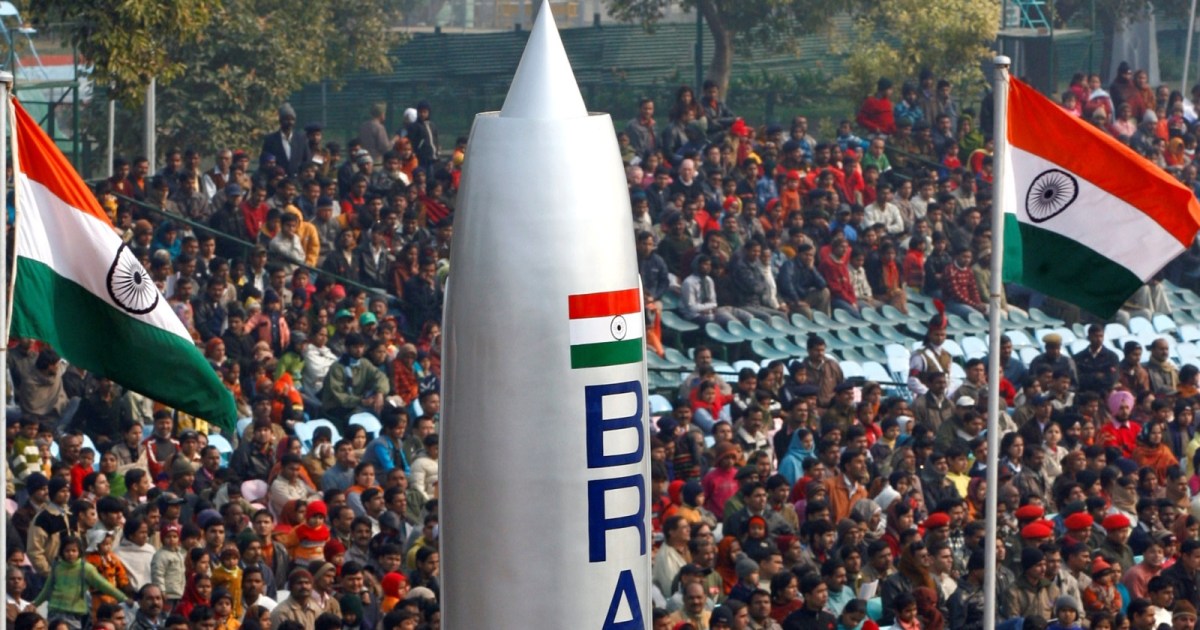The US National Interest website published a report on India's accidental launch of a cruise missile about two months ago, saying that it provided another reminder of how a nuclear war could erupt by mistake, and spoke of the fragility of nuclear deterrence.
The report recalls that on March 9, India mistakenly fired a BrahMos cruise missile at Pakistan, and the Indian government later issued a statement describing what happened as a result of a technical malfunction during routine maintenance and inspection of its missiles.
Control is suspended by luck
He added that while the missile was unarmed and no casualties were reported, its accidental launch from one nuclear-armed state to another nuclear-armed state raises questions about how de-escalation could become a matter of luck and institutional failure.
Matt Korda, the senior researcher and director of the Nuclear Information Project at the Federation of American Scientists, was quoted as saying that Indian sources assured him that launching the missile required bypassing a series of software and mechanical locks to start the countdown, adding that although it was not known whether the launch was caused by human error. Or a technical error, it was clear that this missile was not supposed to launch at all, however, once launched, there was no possible way to abort the launch because this type of missile does not have a self-destruct system in place, unlike the missiles of India with nuclear power.
worrying situation
Although the damage was limited to civilian property, Korda said he was concerned that the situation could have turned much worse, especially since Pakistan appears to have inaccurately tracked the missile.
It is reported that Pakistani officials misidentified the launch point and some aspects of the missile's trajectory, and Indian officials later said that the flight map published by Pakistan was inaccurate.
Korda emphasized that these errors and actions have major repercussions because, in a different context, Pakistan may miscalculate or misunderstand the missile's target and rush toward swift retaliation, recalling, specifically, Pakistan's activation in 2019 of the country's National Command Authority, the organization that manages the arsenal. Pakistan nuclear.
He described it as a "clear piece of nuclear signal" directed at India, and compared the move to Putin's recent putting Russia's nuclear forces on high alert.
miscommunication
In addition, the report says, the miscommunication has further impeded the stabilization of the crisis between India and Pakistan, with Pakistani officials stating that India did not use high-level military hotlines to alert or report an accidental launch and waited two days after the launch to issue a public statement.
Korda stressed that this situation between India and Pakistan highlights some dangerous dynamics that can play a role when we think about the escalation of the crisis between nuclear-armed states, referring to the history of the conflict between India and Pakistan, saying that this situation could have had a different and more result. Lethal if the two countries are experiencing severe tensions.
dangerous game
Korda also recalls India's tendency in recent years to put its missiles at a high level of readiness, which has prompted Pakistan to increase the readiness of its missiles, a dangerous escalation game played by two nuclear-armed states.
Korda therefore believes that luck “certainly plays a role in preventing crises from escalating, although it is not something we should rely on, particularly in the context of nuclear weapons.
The big conclusion here, Korda concluded, is that we cannot expect that nuclear deterrence will always work as we expect it to.

